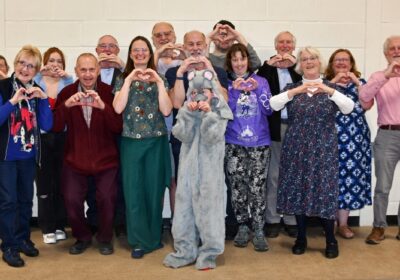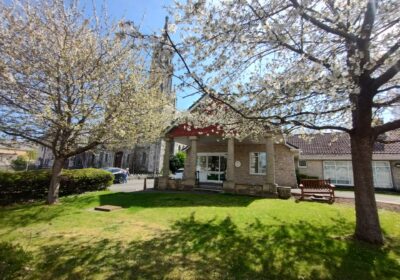SCORES of people each year require treatment for burns due to fireworks incidents in the south west – and medical experts are warning people ahead of Bonfire Night weekend.
The NHS says around 40 people each year have needed treatment at specialist burns units as a result of fireworks accidents in the region, and 100 as a result of bonfire accidents, while many more suffer minor burns, treatable locally.
Specialist burns services in Plymouth, Salisbury and Bristol see most serious cases, while people with the worst injuries will generally be transported to the tertiary Adult Burns Centre for the region, based at Morriston Hospital, Swansea.
Jeremy Yarrow, consultant burns and plastic surgeon at the Welsh Centre for Burns and Plastic Surgery in Swansea, said: “Every year, hospitals in the South West see the results when bonfires and fireworks go wrong.
“Burns can be horrific, even fatal, so we’d urge everyone to follow the RoSPA guidance and the firework code – especially when there are children around.
“Do go to a properly-organised event if possible, and if you can’t, then please make sure you buy licensed fireworks and follow all the instructions.
“People tend to think it can’t happen to them. But every year, it does happen, to children and adults alike.”
READ MORE: List of fireworks displays in Somerset, Wiltshire and Dorset
The Royal Society for the Prevention of Accidents (RoSPA) advises the safest place to enjoy fireworks is at a large public display, as the risk of being injured is much lower than at smaller family or private parties.
It also provides advice on its website on how to stay safe around sparklers, bonfires and fireworks.
Figures from NHS England show that the number of people visiting the burns and scalds advice page of the NHS website increases by a quarter (27%) during the weekend of bonfire night.
The page receives an average of 8,208 visits during the firework-fuelled weekend – equivalent to one visit every 21 seconds.
The page provides first aid advice on treating burns and scalds, such as:
• Getting the person away from the heat source immediately
• Removing any clothing or jewellery near the burnt skin
• Cooling the burn with cool or lukewarm running water for 20 to 30 minutes, and not using iced water or any creams or greases like butter
• Keeping the person warm with blankets, not touching the burnt area
• Once the burn is cool, covering it with cling film or a clean plastic bag
• Using painkillers such as paracetamol or ibuprofen to treat any pain
• Raising the affected area to reduce any swelling
• Dialling 999 for acid or chemical burns, removing contaminated clothing and rinsing the burn with as much clean water as possible











Leave a Reply